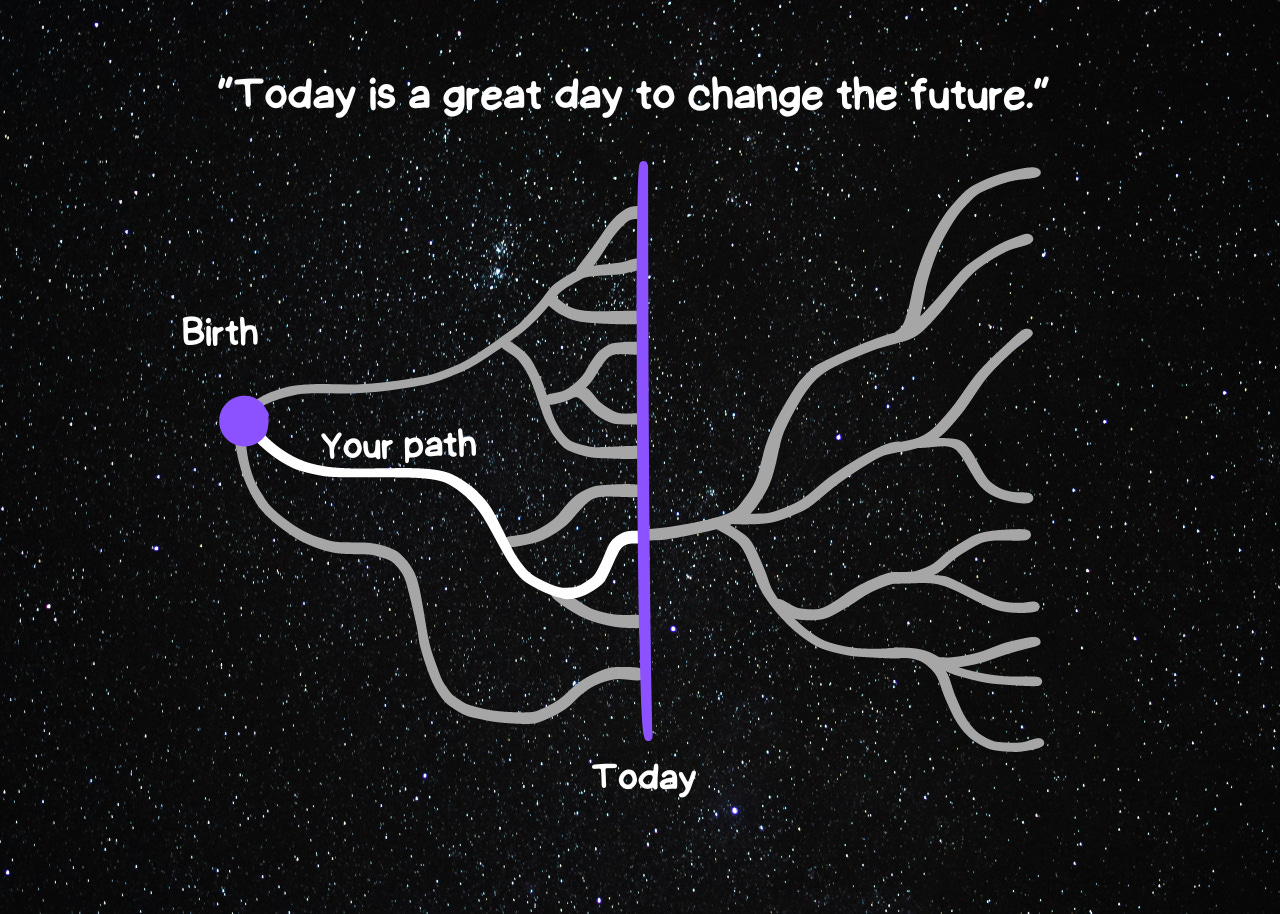People with this quality are more likely to be successful
Walter Mischel's marshmallow experiment
🏷️ Categories: Behavior, Goals
In the 1960s, Walter Mischel, a professor at Stanford University, began conducting some interesting psychological research.
In his experiments, Mischel and his team subjected hundreds of 4- and 5-year-old children to different tests. After years of research, they revealed what is now considered a basic trait for personal, work and health success.
Let's see what happened and, more importantly, how you can apply it.
The marshmallow experiment

The experiment began by taking the child to a room where he sat alone and the researcher placed a marshmallow on the table in front of his eyes.
Next, the researcher proposed a deal.
“I'm going to leave the room for 10 minutes, if you don't eat the marshmallow while I'm gone, when I come back you'll get one more. However, if you eat the marshmallow, when I come back I won't give you any more.”
The deal was simple: one marshmallow now or two marshmallow later.
Now the researcher would leave the room for 10 minutes.
The recordings of the children waiting alone in the room are curious, some would get up and eat the marshmallow as soon as the researcher left, others would try to hold out and walk around the table, but would eventually give in to temptation, and finally, only a few waited the 10 minutes.
This study by Mischel and colleagues, (1972) was not the interesting part, the really interesting part came years later.
What you do today will influence tomorrow
Years passed and the participants in the experiment went from being children to adults. The researchers kept in contact with the children and their families and then tested them again as adults.
What they found was surprising.
The children who waited 10 minutes and did not eat the marshmallow were mostly more successful as adults in several areas of their lives, including better academic performance, higher income, lower substance abuse, lower risk of obesity and lower stress levels.
As the years went by, the same thing happened every time a follow-up was done, the group that waited the 10 minutes had better results than the others.
Self-control turns out to be a key ability in life.
The importance of delayed gratification
Deferred gratification is the ability to resist the temptation of an immediate reward in order to obtain a greater reward in the future.
Here are examples that we have all experienced:
Impulse buying vs. saving: If you delay the gratification of buying something expendable, you will be able to save for a necessary purchase in the future.
Going out with friends vs. studying: If you delay the gratification of going out today, you’ll be able to concentrate on your studies, learn more and get better grades.
Fast food vs. home cooking: If you delay the gratification of eating out by ordering fast food, you will cook healthy food, preserve your health better in the long run and learn to cook.
There are countless examples every day.
Usually, the path to achieving goals requires us to push ourselves and sometimes do things we don't feel like doing. It's up to us to decide whether to take the easy path that diverts us from our intentions or a more difficult path, but one that in the long run is aligned with what we want to achieve.
You are in that situation every day.
How to train delayed gratification
Let's make one thing clear, just because these studies show that children who waited 10 minutes were more successful does not mean that those who ate the marshmallow are doomed for life.
This is a trainable skill.
What is clear is that in life, at some point, you will need discipline and to remove all distractions from your environment to focus on what you want to achieve.
✍️ It's your turn: How much of what you do in your day moves you where you want to go?
💭 Quote of the day: “If I really want to improve my situation, I can work on the one thing I have control over: myself.” Stephen Covey
See you soon. Take care 😊!
References 📚
Mischel, W., Ebbesen, E. B., & Zeiss, A. R. (1972). Cognitive and attentional mechanisms in delay of gratification. Journal Of Personality And Social Psychology, 21(2), 204-218. https://doi.org/10.1037/h0032198
Mischel, W., Shoda, Y., & Peake, P. K. (1988). The nature of adolescent competencies predicted by preschool delay of gratification. Journal Of Personality And Social Psychology, 54(4), 687-696. https://doi.org/10.1037/0022-3514.54.4.687
Mischel, W., Shoda, Y., & Rodriguez, M. L. (1989). Delay of Gratification in Children. Science, 244(4907), 933-938. https://doi.org/10.1126/science.2658056
Shoda, Y., Mischel, W., & Peake, P. K. (1990). Predicting adolescent cognitive and self-regulatory competencies from preschool delay of gratification: Identifying diagnostic conditions. Developmental Psychology, 26(6), 978-986. https://doi.org/10.1037/0012-1649.26.6.978







nice synthesis. I think there is a lot of debate about the validity of this experiment and that some studies have disputed its findings. Over all psychology is facing some issues with both a replication crisis and the problem of WIERD studies (Western, Industrialized, Educated, Rich, Democratic).
The marshmallow studies have come under scrutiny given the implications they have been purported to have.
https://anderson-review.ucla.edu/new-study-disavows-marshmallow-tests-predictive-powers/